 EDITOR'S PICK
EDITOR'S PICK
The UK, Netherlands, & California Have More EV Charging Ports Than Gas Pump Nozzles?
10 Sep 2025 | Synopsis
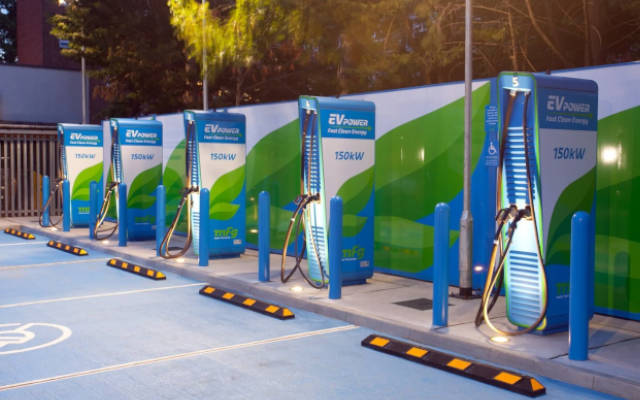 The UK, Netherlands, and California now have more public EV charging ports than gas pump nozzles, marking a symbolic shift in transportation infrastructure. This milestone reflects rapid growth in electrification, policy support, and consumer adoption. It signals that EVs are not just viable - they're becoming dominant in key regions leading the clean mobility transition.
The UK, Netherlands, and California now have more public EV charging ports than gas pump nozzles, marking a symbolic shift in transportation infrastructure. This milestone reflects rapid growth in electrification, policy support, and consumer adoption. It signals that EVs are not just viable - they're becoming dominant in key regions leading the clean mobility transition.India's Altmin Lithium Project Becomes First To Join U.S.-Led Mineral Security Partnership
10 Sep 2025 | Synopsis
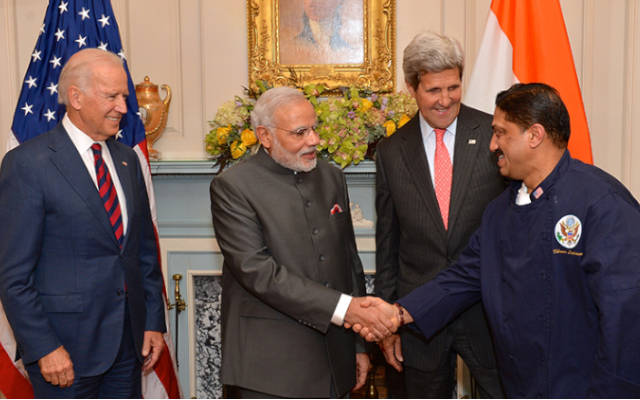 Altmin became the first Indian firm to join the U.S.-led Mineral Security Partnership, acquiring lithium refining technology from Brazil to build the world's first spodumene-to-battery-grade refinery outside China. Initiated under the Biden administration, the milestone strengthens India's clean energy supply chain and reduces dependence on Chinese processing.
Altmin became the first Indian firm to join the U.S.-led Mineral Security Partnership, acquiring lithium refining technology from Brazil to build the world's first spodumene-to-battery-grade refinery outside China. Initiated under the Biden administration, the milestone strengthens India's clean energy supply chain and reduces dependence on Chinese processing.A Groundbreaking Study Finds EVs Are Now The Lowest Carbon Ride On U.S. Roads - Everywhere, For Everyone
10 Sep 2025 | Synopsis
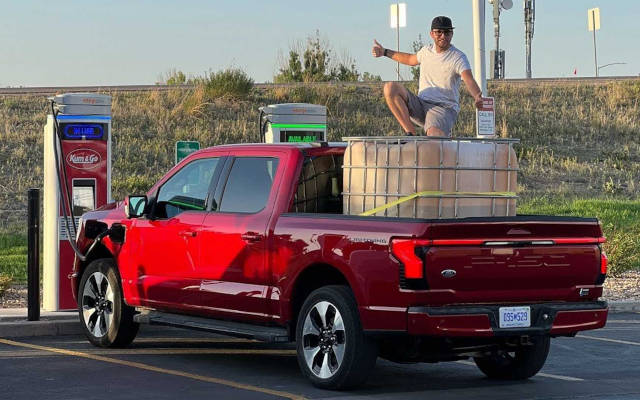 A new study finds battery electric vehicles now have the lowest lifetime carbon emissions of any car type across every U.S. county, regardless of grid mix or driving habits. Researchers analyzed 35 vehicle configurations and confirmed EVs outperform hybrids, plug-in hybrids, and gas cars - even when carrying cargo. Grid decarbonization and improved efficiency have made EVs the most climate-friendly choice nationwide.
A new study finds battery electric vehicles now have the lowest lifetime carbon emissions of any car type across every U.S. county, regardless of grid mix or driving habits. Researchers analyzed 35 vehicle configurations and confirmed EVs outperform hybrids, plug-in hybrids, and gas cars - even when carrying cargo. Grid decarbonization and improved efficiency have made EVs the most climate-friendly choice nationwide.Zoox Launches Robotaxis In Las Vegas: Not Shoehorned Autonomy, But A Purpose‑Built Platform
10 Sep 2025 | Synopsis
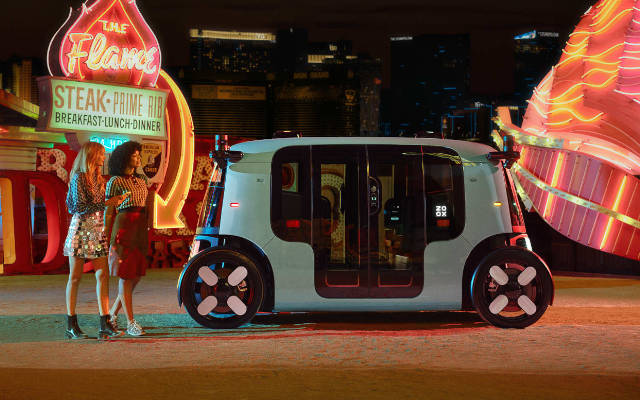 Amazon's Zoox has launched its first public robotaxi service on the Las Vegas Strip, offering free rides in fully autonomous, purpose-built electric vehicles. Designed from the ground up for self-driving, Zoox features bi-directional movement, face-to-face seating, and a 360° sensor suite. The pilot includes remote supervision, safety redundancies, and limited fleet deployment, marking a strategic step in Amazon's urban mobility ambitions.
Amazon's Zoox has launched its first public robotaxi service on the Las Vegas Strip, offering free rides in fully autonomous, purpose-built electric vehicles. Designed from the ground up for self-driving, Zoox features bi-directional movement, face-to-face seating, and a 360° sensor suite. The pilot includes remote supervision, safety redundancies, and limited fleet deployment, marking a strategic step in Amazon's urban mobility ambitions.Huawei Opens Worlds First 100 Megawatt Charging Station Which Can Charge A Tesla In Just 2 Minutes
05 Sep 2025 | Synopsis
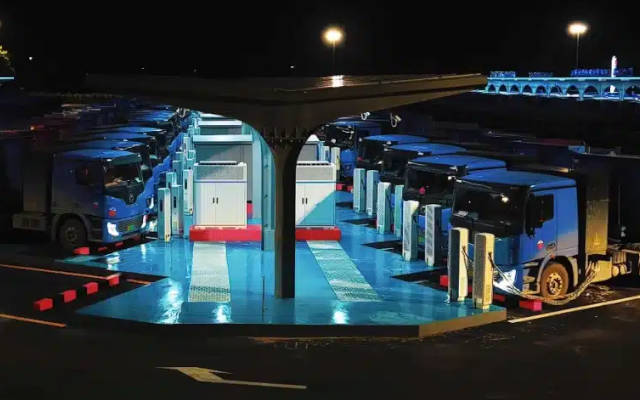 Huawei has launched the world's first 100-megawatt EV charging station in Sichuan, China, capable of charging a Tesla in just two minutes. Built for electric heavy-duty trucks, the $21 million facility spans 11.5 acres, supports 700 vehicles daily, and features ultra-fast chargers up to 1.44 MW. Developed with Yuanqi Xingguang, it marks a major leap in EV infrastructure and positions China at the forefront of ultra-high-capacity charging innovation.
Huawei has launched the world's first 100-megawatt EV charging station in Sichuan, China, capable of charging a Tesla in just two minutes. Built for electric heavy-duty trucks, the $21 million facility spans 11.5 acres, supports 700 vehicles daily, and features ultra-fast chargers up to 1.44 MW. Developed with Yuanqi Xingguang, it marks a major leap in EV infrastructure and positions China at the forefront of ultra-high-capacity charging innovation.
 Si Exclusive
Si Exclusive
Hydrogen's Flight Path: Fuel Cells, Turbines, and the Economics of Clean Aviation
10 Oct 2025 |  Aviation is shifting from Jet A to four fuel systems: electricity, hydrogen (fuel cell and combustion), SAF, and petroleum. Fuel cells suit short-haul aircraft; hydrogen combustion may power long-range jets. SAF bridges legacy fleets. Hydrogen costs - $5-$7/kg today, possibly $2/kg by 2040 - impact ticket prices and infrastructure decisions. Airport authorities, airlines, and governments will share deployment costs. Each fuel has distinct environmental pros and cons shaping aviation's net-zero future.
Aviation is shifting from Jet A to four fuel systems: electricity, hydrogen (fuel cell and combustion), SAF, and petroleum. Fuel cells suit short-haul aircraft; hydrogen combustion may power long-range jets. SAF bridges legacy fleets. Hydrogen costs - $5-$7/kg today, possibly $2/kg by 2040 - impact ticket prices and infrastructure decisions. Airport authorities, airlines, and governments will share deployment costs. Each fuel has distinct environmental pros and cons shaping aviation's net-zero future.
 11 Oct 2025 06:02:41 UTC |
RECENT PODCASTS
BYD Soars - Cheaper Tesla Models - The Bolt is Back - Rivian
SEARCH RSSTREAM
 48 New Postings In Past 24 Hours
48 New Postings In Past 24 Hours
Category:mobility
Region:Europe
Date:10 Oct 2025
Category:energy
Region:Global
Date:10 Oct 2025
Category:mobility
Region:SoAmerica
Date:10 Oct 2025
Category:energy
Region:NoAmerica
Date:10 Oct 2025
Category:mobility
Region:NoAmerica
Date:10 Oct 2025
Category:finance
Region:AsiaPacific
Date:10 Oct 2025
Category:policy
Region:NoAmerica
Date:10 Oct 2025
Category:finance
Region:NoAmerica
Date:10 Oct 2025
Category:mobility
Region:AsiaPacific
Date:10 Oct 2025
Category:policy
Region:NoAmerica
Date:10 Oct 2025